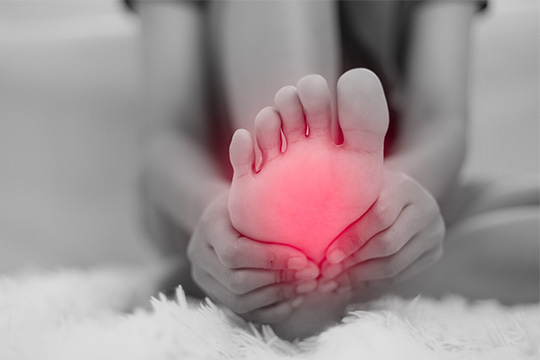Home > Disease and Treatments > Innovations in Cardiology: What’s New in Heart Health
Innovations in Cardiology: What’s New in Heart Health
Cardiovascular disease remains the leading cause of mortality worldwide, accounting for nearly 18 million deaths annually according to the World Health Organization. As the global burden of heart disease increases, the field of cardiology continues to evolve rapidly with new diagnostic tools, treatment modalities, and preventive strategies. These innovations are improving accuracy, reducing procedural risks, and enabling more personalized care.
Below are some of the most significant advances shaping the future of cardiac care.
1. Remote Monitoring and Wearable Devices
Advancements in digital health have enabled continuous cardiac monitoring outside the hospital environment. Smart devices equipped with ECG, photoplethysmography (PPG), and oxygen saturation sensors allow clinicians to track patients in real time.
- Atrial fibrillation (AFib) detection through wearables has significantly improved early diagnosis.
- Remote patient monitoring (RPM) platforms facilitate ongoing management of hypertension, heart failure, and arrhythmias, reducing readmissions and optimizing treatment adherence.
2. Artificial Intelligence in Cardiac Diagnostics
Artificial intelligence (AI) and machine learning (ML) algorithms are revolutionizing diagnostic accuracy and risk stratification.
- AI-enhanced echocardiography provides automated quantification of ejection fraction, strain imaging, and valve assessment.
- Predictive analytics help identify patients at high risk of myocardial infarction or sudden cardiac arrest.
- Deep learning applied to ECGs can detect silent left ventricular dysfunction and early-stage cardiomyopathies.
- These tools enhance efficiency, reduce human error, and support data-driven clinical decision-making.
3. Minimally Invasive Cardiac Interventions
Minimally invasive techniques have transformed interventional cardiology, offering patients safer alternatives to open-heart surgery.
- Transcatheter Aortic Valve Replacement (TAVR): Now considered the standard of care for high – and intermediate-risk patients with severe aortic stenosis.
- Percutaneous Coronary Interventions (PCI): Advanced stent technologies and drug-coated balloons improve long-term patency and outcomes.
- Robotic-assisted interventions provide enhanced precision and reduced radiation exposure for clinicians.
4. Advanced Cardiac Imaging
Imaging technology has seen significant breakthroughs, allowing earlier and more precise diagnosis.
- 3D and 4D echocardiography deliver detailed functional assessments.
- Cardiac MRI with tissue characterization aids in differentiating ischemic from non-ischemic cardiomyopathies.
- CT-derived fractional flow reserve (FFR-CT) enables non-invasive evaluation of coronary artery disease severity.
- These innovations reduce diagnostic uncertainty and improve treatment planning.
5. Regenerative and Cellular Therapies
Research in regenerative cardiology aims to restore myocardial function post-injury.
- Stem cell therapy is being studied for its potential to repair ischemic heart tissue.
- Gene therapy trials are investigating ways to enhance angiogenesis and improve cardiac contractility.
- Tissue engineering holds promise for bioartificial heart structures, though still largely experimental.
- While not yet standard clinical practice, these therapies represent a paradigm shift in long-term heart failure management.
6. Genomics and Precision Medicine
The integration of genetic profiling into cardiology has enabled more tailored prevention and treatment strategies.
- Genetic testing can identify inherited conditions such as hypertrophic cardiomyopathy (HCM), long QT syndrome, and familial hypercholesterolemia.
- Pharmacogenomics allows optimization of drug therapy, minimizing adverse reactions and maximizing therapeutic benefits.
- Personalized risk models combine genetic, clinical, and lifestyle data for proactive interventions.
7. Digital Health and Cardiac Rehabilitation
Digital health solutions are increasingly utilized to improve secondary prevention.
- App-based cardiac rehabilitation programs offer supervised exercise regimens, dietary guidance, and adherence tracking.
- Telehealth platforms facilitate follow-up consultations, particularly beneficial for rural and underserved populations.
- Data integration across EHRs and mobile apps ensures continuity of care across healthcare settings.
Looking Ahead
Cardiology is undergoing a transformation driven by innovation, with a strong focus on precision, minimally invasive interventions, and preventive care. The convergence of artificial intelligence, genomics, and digital health tools will likely define the next decade of cardiac practice.
While technology advances at an unprecedented pace, the challenge for healthcare systems lies in ensuring accessibility, affordability, and equitable distribution of these innovations across diverse populations.
Your Heart Deserves the Best Care
At Royal Care Hospital, Coimbatore, our Comprehensive Advanced Cardiac Sciences Division is at the forefront of innovation, combining advanced technology, world-class expertise, and compassionate care.
What We Offer
- Preventive Cardiology: Health check-up programs, advanced diagnostics, and risk factor management to detect heart disease early.
- Interventional Cardiology: 24×7 Cath Lab services including emergency primary angioplasty, complex stenting, device closures (ASD, VSD, PDA), TAVI, rotablation, and electrophysiology studies with radiofrequency ablation.
- Cardiothoracic & Vascular Surgery (CTVS): Expertise in CABG (on-pump & off-pump), valve repair/replacement, aortic aneurysm and dissection surgeries, vascular bypass, and carotid endarterectomy.
- Minimally Invasive Cardiac Surgery (MICS): Specialized in minimally invasive CABG, valve repair/replacement, ASD closures, Maze procedure for AFib, and thoracoscopic tumor removal.
- Comprehensive Post-Operative Care: Dedicated ICUs, infection-controlled modular OTs, and structured cardiac rehabilitation programs.
Our Focus
We are committed to early detection, minimally invasive procedures, and holistic rehabilitation, ensuring better outcomes, faster recovery, and long-term heart health.
At Royal Care, every beat matters and every patient receives care that matches international standards.
To book a consultation with our cardiology experts, call 90878 77977 or visit www.royalcarehospital.in
Appointments must be made 24 hours in advance.
Book an AppointmentRECENT BLOGS

Headaches are among the most common ailments people experience, but not all headaches are ...
Read More
Living with diabetes means taking extra care of your health and one of the most important ...
Read More
Each year, World Heart Day unites people worldwide to raise awareness of heart health and ...
Read More
